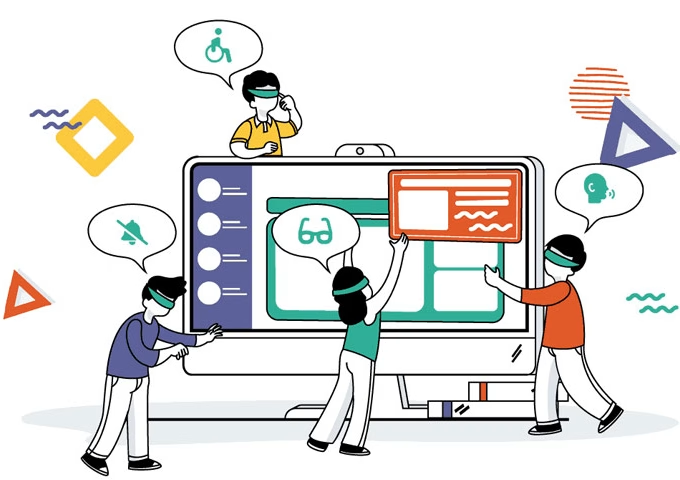In an era where businesses and organizations are increasingly susceptible to a range of unforeseen challenges, the ability to manage crises effectively has become a critical skill.
Crisis management is not just about responding to the crisis at hand but also about preparing for potential threats and mitigating their impact. This article aims to explore seven key strategies to enhance your crisis management skills, providing you with the tools to navigate and resolve crises effectively.
1. Understand the Elements of a Crisis
To manage a crisis effectively, it’s essential first to understand what a crisis entails. A crisis can be any unexpected event that poses a significant threat to an organization or its stakeholders, demanding immediate attention and action. Recognizing a crisis involves being aware of early warning signs, which could range from sudden financial downturns to public relations disasters.
Understanding the different types of crises is also crucial. These can include natural disasters, technological failures, ethical breaches, or reputational damage. By familiarizing yourself with various crisis scenarios, you can better prepare for and respond to them. For instance, a financial crisis requires a different approach than a natural disaster. Recognizing and understanding these differences is the first step in effective crisis management.
2. Gain Theoretical Knowledge through Education
While practical experience is vital in crisis management, theoretical knowledge also plays a significant role. Pursuing formal education, such as an online masters in strategic communications, can equip you with a comprehensive understanding of crisis communication strategies, risk assessment, and stakeholder management.
An online master’s program in strategic communications offers flexibility and depth, covering various aspects of crisis management, from preemptive planning to post-crisis analysis. These programs often include case studies and simulations, providing insights into real-world crisis scenarios. The knowledge gained from such a program can empower you to make informed decisions and develop effective crisis management strategies, enhancing your overall skill set in this critical area.
3. Develop a Crisis Communication Plan
A cornerstone of effective crisis management is having a well-defined crisis communication plan. This plan should outline how your organization will communicate during a crisis, including identifying the key messages, communication channels, and spokespersons.
An effective crisis communication plan starts with identifying potential crises and understanding the stakeholders involved. It should clearly define roles and responsibilities, ensuring everyone knows what to do when a crisis hits. The plan must also include procedures for monitoring and updating information as the situation evolves.
Regularly reviewing and updating your crisis communication plan is crucial. As your organization grows and the external environment changes, your plan should evolve to reflect new risks and realities. A current and comprehensive plan can be the difference between a well-managed crisis and a situation that escalates beyond control.
4. Practice Active Listening
Active listening is a critical skill in crisis management. During a crisis, effective listening can help you grasp the full scope of the situation, understand the concerns of stakeholders, and respond appropriately.
To improve your active listening skills, focus on the speaker without distractions, acknowledge their points, and ask clarifying questions. Avoid making assumptions or rushing to conclusions.
Practicing active listening also means being receptive to feedback and different perspectives. This openness can lead to more effective problem-solving and decision-making during a crisis. By honing your active listening skills, you enhance your ability to manage crises effectively, fostering trust and respect among stakeholders.
5. Enhance Decision-Making Abilities
In the midst of a crisis, the ability to make quick, informed decisions is important. Enhancing your decision-making skills involves understanding the situation, weighing the potential consequences, and considering various alternatives. Start by gathering as much relevant information as possible. In a crisis, time is of the essence, but so is the accuracy of the information based on which decisions are made.
Developing a systematic approach to decision-making can also be beneficial. This might include identifying key objectives, analyzing risks, and considering the impact of each decision on all stakeholders involved.
6. Learn to Stay Calm Under Pressure
Staying calm under pressure is a critical skill in crisis management. The ability to remain composed during high-stress situations can prevent panic, inspire confidence in your team, and allow for clearer thinking. Techniques such as deep breathing, mindfulness, and maintaining a positive mindset can be effective in managing stress.
It’s also important to recognize the signs of stress in yourself and others. Be mindful of physical or emotional reactions and have strategies in place to address them. This might involve taking short breaks, engaging in physical activity, or seeking support from colleagues. A calm leader not only makes better decisions but also positively influences the morale and performance of the team during challenging times.
7. Conduct Regular Crisis Simulations
One of the most effective ways to improve crisis management skills is through regular crisis simulations. These simulations provide a safe environment to practice your response to various crisis scenarios and can reveal strengths and weaknesses in your crisis plan and team.
Design simulations to be as realistic as possible, covering a range of potential crises. After each simulation, conduct a thorough debriefing to discuss what went well and what could be improved. This exercise is not about assigning blame but about learning and preparing for actual crises. Regular practice can build confidence and ensure that when a real crisis hits, your team is well-prepared to handle it effectively.
Conclusion
Improving crisis management skills is a continuous process that requires dedication, practice, and a proactive approach. These skills not only enable you to respond to crises more effectively but also help mitigate risks and reduce the potential impact of such events on your organization.
The goal of crisis management is not just to survive the crisis but to emerge stronger and more resilient. By continuously honing these skills, you equip yourself with the tools needed to navigate any crisis, safeguard your organization’s interests, and uphold its reputation in the face of adversity.













